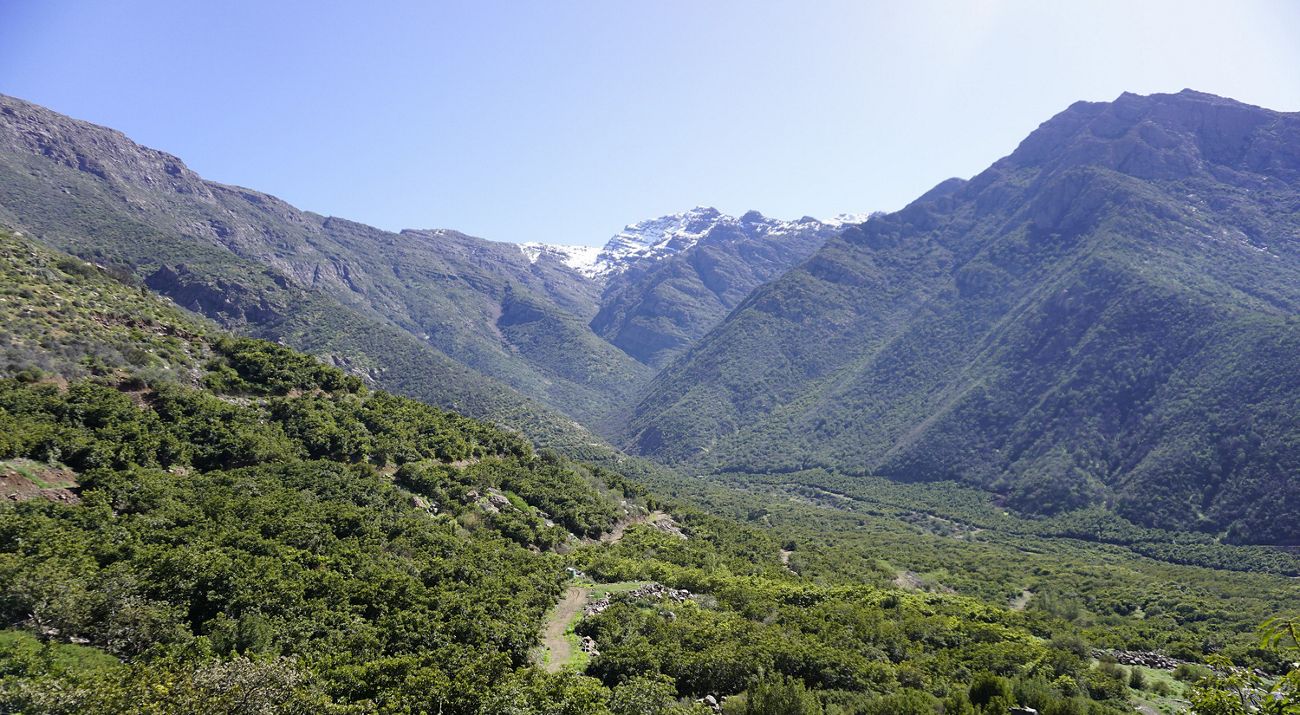TNC and RRG Capital Management protect 775 hectares of habitat in Chile’s Aconcagua Valley through RRG Sustainable Water Impact Fund
Innovative conservation easement – one of the first of its kind in Chile – will conserve highly vulnerable tracts of Mediterranean ecosystem
Media Contacts
-
Rachel Winters
US: The Nature Conservancy
Email: rwinters@tnc.org -
Carmen Carrion
UK/ Europe: The Nature Conservancy
Email: carmen.carrion@tnc.org
The Nature Conservancy (TNC) and RRG Capital Management (RRG) have announced the completion of an innovative agreement designed to protect 775 hectares (1,915 acres) of an intact climate-vulnerable ecosystem within the boundaries of an active agricultural operation.
The long-term conservation of this land was enabled via a pioneering Derecho Real de Conservación (DRC) – a binding legal agreement established in Chilean law, similar in principle to a conservation easement, through which landowners voluntarily agree to prohibit certain land uses in order to protect the biodiversity value of private land in perpetuity.
The new conservation area subject to the DRC is located on the Fundo Santa Rosa agricultural property, which is part of the Persea project of the RRG Sustainable Water Impact Fund (SWIF), a global investment fund managed by RRG. With the support of TNC on conservation and sustainability issues, SWIF seeks to demonstrate how private capital can invest in, manage, and conserve natural resources, reconciling the needs of humanity and nature.
SWIF’s portfolio includes strategic conservation, water, agriculture and renewable energy investments in the United States, South America, and Australia. Its collaboration with TNC – led by the global environmental NGO’s in-house impact investing team, NatureVest – aims to deliver attractive investor returns with positive environmental impact, as part of wider efforts to direct more private capital into addressing the climate and biodiversity crises.
Commenting on this announcement, Christian Chadwick Stuardo – RRG’s Country Director for Chile – said: “We believe this DRC represents a pioneering agreement, one of only a handful in the Aconcagua Valley, and we are excited that it can help demonstrate a new and scalable model, for Chile and other countries, for protecting private lands with high ecological value in combination with productive farming. The 775 hectares protected by the DRC will also provide valuable ecosystem services to the agricultural operations of the rest of the property, where additional conservation measures have been established, such as biological corridors and optimization of water management, which will distribute the benefits of these services beyond the Fundo Santa Rosa property.”
Among the identified ecosystem services are pest management, mitigating erosion and landslides, and increasing water security by protecting high conservation priority Mediterranean habitat. TNC will serve as the conservation guarantor for the DRC and will inform the management plan, as well as contribute its scientific experience to ongoing monitoring efforts.
Commenting on his organization’s involvement in the project, Juan José Donoso – Executive Director of TNC Chile – said: “As TNC, we have a special interest in the Mediterranean region of Chile, which is one of the iconic landscapes in which we develop our work in the country. Today, only 4% of the national Mediterranean ecosystem enjoys some degree of protection. These 775 hectares are of high ecological value: according to the characterization study, the flora and fauna present in the territory have a high level of endemism, with native forests of various species and birds such as the condor and giant hummingbird.”
Donoso highlights the threat posed to this ecosystem by the high rate of land conversion enabled by previous lack of legal protection: “The property has more than seven hundred hectares of Mediterranean habitat in good condition, including native tree species such as huingán, litre, peumo, quillay, colihue and colliguay, so we are acting in time to preserve these valuable ecosystems for the future.”
RRG notes that the commitment to sustainability at Persea includes avoiding the transformation of native forests into monocultures, protecting streams that provide water supply in the area, implementing water management that conserves the resource and increases its availability, and incorporating biological corridors that allow the endemic fauna present - such as yacas, Chilean lizard and chinchilla mouse, among others - the necessary movement for their survival.
The implementation of the DRC was also enabled by support from partners including Rabofinance Chile; Fundación Centro de los Bosques Nativos (FORECOS), which oversaw baseline studies to quantify the ecological values of the area encompassed by the DRC; and the legal firm Clyde & Co Chile.
For more background on the RRG Sustainable Water Impact Fund, visit this page on Nature.org or this page on Renewablegroup.com
The Nature Conservancy is a global conservation organization dedicated to conserving the lands and waters on which all life depends. Guided by science, we create innovative, on-the-ground solutions to our world’s toughest challenges so that nature and people can thrive together. We are tackling climate change, conserving lands, waters and oceans at an unprecedented scale, providing food and water sustainably and helping make cities more resilient. The Nature Conservancy is working to make a lasting difference around the world in 81 countries and territories (40 by direct conservation impact and 41 through partners) through a collaborative approach that engages local communities, governments, the private sector, and other partners. To learn more, visit nature.org or follow @nature_press on X.
